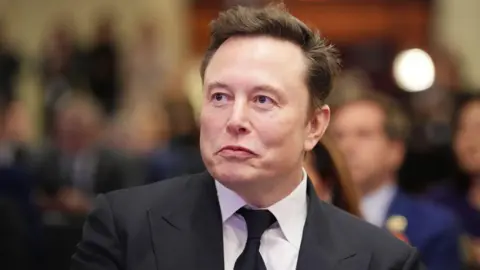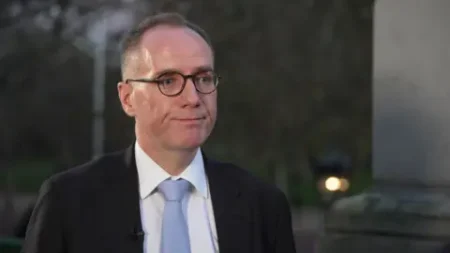Elon Musk’s Tesla has recently taken a significant step towards expanding its influence in the energy sector by submitting an application for a license to supply electricity to British households. This move underscores Tesla’s ambition to diversify its offerings beyond its widely recognized electric vehicles (EVs) and battery storage solutions.
If the application receives approval from Ofgem, the energy regulatory body in the UK, it would enable Tesla to compete directly with major energy suppliers in England, Scotland, and Wales. The capabilities of Tesla’s energy division include extensive experience in solar energy production and energy storage, which could provide it with a competitive edge in the UK market. The company has previously operated a power supplier in Texas that offers consumers favorable rates for charging their EVs and allows them to earn money for contributing surplus electricity back to the grid.
The application was officially filed late last month and bears the signature of Andrew Payne, who is responsible for Tesla’s European energy operations. While Tesla did not respond immediately to inquiries from the BBC regarding this endeavor, the implications of this potential development are substantial. Should Tesla be granted the license, it would usher in a new phase for the company, allowing it to penetrate a market traditionally dominated by established energy firms.
Notably, Tyson has already made inroads into the UK market through its sales of electric vehicles and home energy storage systems; the company has sold over a quarter of a million EVs and tens of thousands of residential batteries. This established customer base could facilitate a smooth entry into the electricity supply business, leveraging synergies between its existing products and its new energy offering.
However, it’s essential to consider the broader context of this application. Tesla’s EV sales across Europe have encountered a downturn in recent months, with a reported decrease of nearly 60% in UK car registrations of its vehicles just last July. Similar trends have been observed in Germany, leading to a concerning 45% decline in sales across ten major European markets. The fierce competition from other electric vehicle manufacturers, most notably China’s BYD, has created a challenging landscape for Tesla.
Additionally, Musk’s engagement in controversial political matters has led to scrutiny. His relationship with political figures such as former US President Donald Trump has received criticism, particularly as tensions between them have escalated recently. Musk’s involvement in right-wing politics in various countries, including the UK and Germany, has not endeared him to some of Tesla’s customer base, potentially affecting brand loyalty during these challenging market conditions.
The application for the energy supply license is poised to take up to nine months before a decision is rendered by Ofgem. In the meantime, the outcome could significantly influence Tesla’s operational focus as it seeks to diversify its business model in Europe. If approved, this strategic move could help address dropping EV sales by offering a complementary product that promotes its brand ethos of renewable energy and sustainable living.
As Tesla strives to make its mark in the UK’s electricity supply sector, all eyes are on Ofgem’s forthcoming decision and how it will shape the future of energy competition in the region.











